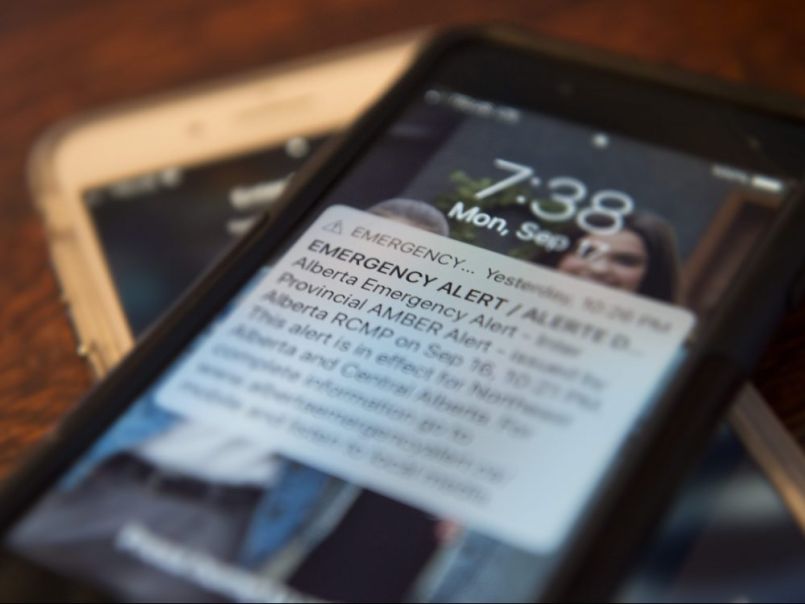By now, most Canadians will recognize the shrill, attention-grabbing tones of the national Alert Ready system.
Occasionally heard on radio and television in Canada since 2015 — and earlier than that in Alberta — those alerts are essential tools for emergency officials to disseminate critical information in times of crisis.
Last year, the system debuted on LTE-capable mobile phones, a vital addition to the system.
Sadly, there are too many people out there who hear the alert tones but, ultimately, aren’t getting the message.
Just last week, an angry resident of Ontario’s Niagara Region felt compelled to call 911 to complain about being woken up by an Amber Alert issued in the small hours of the morning in connection with an abducted tot.
“I want to know who the hell is sending these alerts out,” asks the angry resident, one of about a dozen or so callers who phoned after the alert was sent. “What right do you have to send an alert out to Niagara Falls? Wake me up at five o’clock in the f—ing morning!”
The recording was released by Niagara Regional Police in a bid to raise awareness of the purpose and effectiveness of Amber Alerts.
The police service also wanted to let people know it was inappropriate to call 911 to lodge complaints about the alerts. Because apparently, we live in an era in which this is necessary.
When police near Toronto were investigating the parental abduction of an 11-year-old girl in February, the emergency alert service issued an Amber Alert on that occasion, drawing almost 100 complaint calls to 911 deemed to be a misuse of the system.
That time, the perceived problem wasn’t just about interrupted sleep but also interrupted television programming. Because apparently, our entertainment is worth more than the efforts of police to safeguard the lives of the vulnerable.
(Sadly, this case would turn into a murder-suicide investigation.)
And in March, after police in Edmonton issued an Alberta-wide Amber Alert in relation to a missing eight-year-old boy, complaints started rolling in, too.
While some unhappy campers questioned why people in communities hundreds of kilometres away would be receiving a missing person alert, it should be pointed out the boy was eventually found … in Calgary.
Apart from the dozens of complaints, police also received a number of tips that helped to find the missing child. Because happily, there are still loads of good people out there.
Is the system perfect? Probably not.
It might not be a good idea to send minor updates as Amber Alerts, for example, as it would be unwise to desensitize people to the alert tones from overuse.
But for all its flaws, I’d rather have some kind of nationwide emergency alert system than nothing at all.
It is currently flood season in the east. Monsoon season in southern Alberta comes next month. After that, it will be peak season for wildfires in our forests and grasslands, and epic thunderstorms in Canada’s tornado alleys.
The emergency alert system “is potentially life-saving technology,” said Calgary 911 Cmdr. Doug Odney told Postmedia in March.
If we need to get out of harm’s way or if police need our help to help find a missing child, those ear-piercing, sleep-depriving tones are among the best tools to get the job done.
If anyone really feels this public service is too intrusive, some phone models allow alert notifications to be muted.
Or if you’re really intent on remaining blissfully ignorant during a public emergency, turn off your phone.
Accept the possible life-changing consequences.
And don’t tell us we didn’t warn you.
On Twitter: @RickyLeongYYC
https://lfpress.com/opinion/columnists/leong-emergency-alerts-waking-you-good-thats-the-point/wcm/2f42bbec-6910-451e-8adc-e8e4f0c571a4







